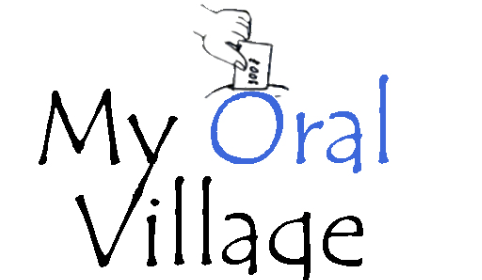My Oral Village: Fighting Poverty and Innumeracy

BY SASHA STOGINY – In today’s world, about one billion adults – two-thirds of whom are women – are illiterate. Although the global literacy rate has grown steadily over the last 65 years, it has been increasing very slowly, with the poorest countries still retaining high illiterate populations.
A related pressing issue is the mathematical equivalent of illiteracy: innumeracy, defined by mathematician John Allen Paulos as “incompetence with numbers rather than words.” Innumeracy can manifest in several ways, even in literate people, but it is especially detrimental in communities where most people cannot read or write.
Social enterprise My Oral Village seeks to identify these gaps in knowledge and offer “oral villagers” financial inclusion through tools, knowledge, and confidence to access financial services. As part of a research study, they asked adults in illiterate villages of Cambodia and Tanzania to count out 107,500 units in their own currency ($60 USD for Tanzania, $25 USD for Cambodia). Most adults were able to do so, despite never having attended school. However, when given a list of five different written numbers and asked to identify the numerical equivalent of the cash value they counted, the majority struggled. Of the five number choices, many had misplaced zeros (175,000), missing zeros (17,500), or extra zeros (1,075,000). The knowledge gap was identified as a significant barrier to numeracy.
This fundamental concept presents a real challenge to people lacking formal education. It and other gaps in practical mathematical knowledge leave innumerate populations vulnerable to financial exploitation. Making such a mistake in a financial setting, like misreading the place value of a number in a bank account statement, can cause a person to lose a lot of money. As such, it is not surprising that many innumerate and illiterate populations are afraid to engage in the global market, lacking confidence in their math skills.
My Oral Village believes that innumeracy involves specific and correctable gaps in people’s mathematical abilities. The benefits of acquiring these skills are being able to use financial services like savings accounts and loans confidently, without fear of being cheated or robbed. As it stands, oral villagers cannot use cash stores of value to save for the future. If they earn money, they immediately trade it for other goods or promised services to avoid counting and writing that which they do not understand. This perpetuates poverty and financial struggle.
My Oral Village fights poverty by making financial inclusion possible for innumerate and semi-numerate people. Their solutions include mobile paying apps, oral passbooks and cash receipts, and financial numeracy games for tablets. A crucial aspect of their push toward inclusion is the integration of iconography into everyday finance. Effective financial iconography needs to be intuitively obvious, quickly guessable, and memorable. Most importantly, icons and images must be regionally specific, as symbols can have completely different meanings across local and global cultures.
By making financial transactions understandable to these vulnerable communities, My Oral Village reduces the risk of errors, fraud, theft, and allows them to participate in the digital cash revolution.
Editor: Allison Williams
Photography Source: https://myoralvillage.org/services/
